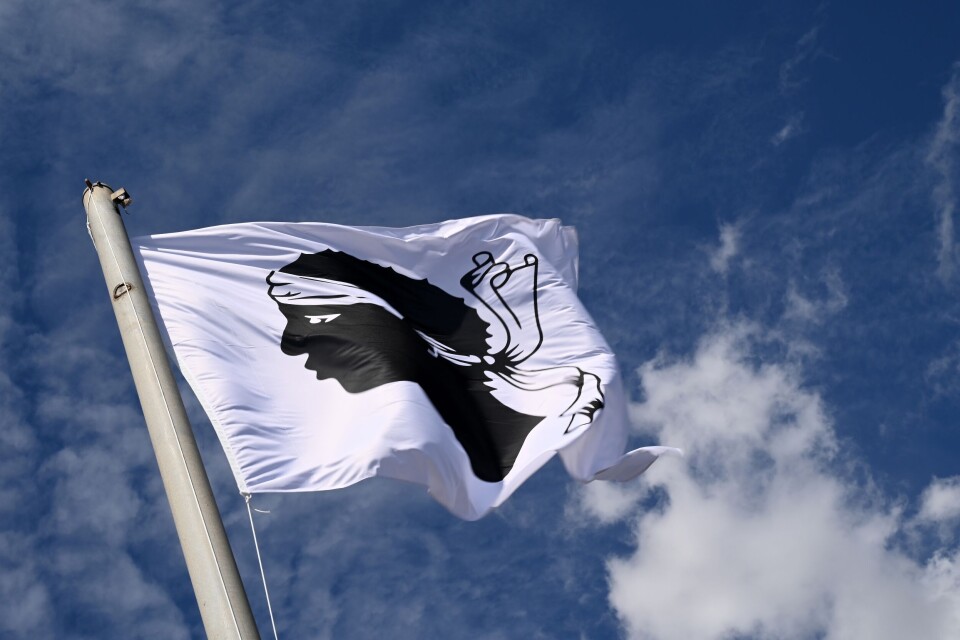-
Trump calls for Marine Le Pen to be freed (but she is not in prison)
US president said her embezzlement court case was a ‘witch hunt’
-
France’s €3 book delivery fee challenged in EU court by Amazon
Online retailer said measure is protectionist and ‘in breach of EU laws’
-
Allergies: How to know pollen levels in your commune of France
Interactive online maps can track and predict how pollen is changing in the air
Corsican independence militant dies of wounds after prison attack
Yvan Colonna was serving a life sentence for murdering former prefect Claude Érignac when he was attacked by another inmate on March 2

[Article updated March 22 at 14:15]
The Corsican shepherd and independence militant Yvan Colonna has died of his injuries in Marseille at the age of 61, following an attack by another inmate of the prison where he was serving a life sentence for murder.
“Yvan Colonna’s family has confirmed his death this evening in a Marseille hospital. [His relatives] ask that they be left to grieve in peace and will not make any comment,” lawyer Patrice Spinosi told AFP.
Le militant indépendantiste corse Yvan Colonna, condamné à la réclusion criminelle à perpétuité pour l'assassinat du préfet Claude Erignac en 1998, est mort, annonce sa famille via son avocat #AFP pic.twitter.com/zHDl9MzYw5
— Agence France-Presse (@afpfr) March 21, 2022
President Emmanuel Macron has said that there will be "consequences" for his death, but added: "In this context, the most important thing is that a sense of calm is maintained."
Colonna was serving a life sentence for the murder of former Corsican prefect Claude Érignac in 1998, and was incarcerated in Arles prison when he was violently attacked on March 2 by a prisoner arrested in Afghanistan for jihadist activities.
It is believed that the attacker leapt at Colonna using his bare hands, accusing him of “blasphemy.”
The antiterrorism authorities had already opened an investigation into the incident and charged the suspect with “attempted murder with links to a terrorist organisation.” A further inquiry was opened into the circumstances surrounding the attack and its first findings are due to be released in April.
Colonna had first been taken to the intensive care unit of Arles hospital before being moved to Marseille. He had been in a coma since the attack and was described as being “brain-dead” by doctors.
The prison attack prompted a series of separatist protests in Corsica, with protesters targeting institutional buildings, and claimed that “the French state is a murderer” (“Statu francesu assassinu” in Corsican) for allowing the incident to happen.
In the evening of March 9, violent confrontations between protesters and the authorities sprang up across the island, with 23 police officers and three members of the public being injured, including a Corse-Matin newspaper journalist.
The protests, which were still happening as recently as last Sunday (March 13), have pushed the French government to agree to talks on autonomy for the island.
Read more:Why are there angry protests against the French state in Corsica?
Read more:France could enable autonomy for Corsica after weeks of protests
Since Colonna's death was announced, Corsican lycée pupils have taken to the streets and blocked access to schools in peaceful demonstrations commemorating his life.
The murder of Claude Érignac
Claude Érignac took over as prefect of Corse-du-Sud in 1996 amid a period of intense separatist violence on the island.
He was assassinated on February 6, 1998, when he was shot three times in the neck and head while on his way to a classical music concert in Ajaccio.
The assassination of Mr Érignac was ordered by an independence movement that campaigned for the separation of Corsica from France. It shocked the nation at the time, Claude Érignac being the first ever prefect to have been killed while serving office in France.
Colonna, a shepherd living on the coast in the centre of Corsica, was a member of the National Liberation Front of Corsica (NLFC), one of the most prominent nationalist movements on the island.
The NLFC and nationalists members were believed by police to be responsible for several attacks, including the bombing of the Ecole Nationale d’Administration (ENA) in Strasbourg in 1997, the bombing of the Majestic Hotel in Vichy in 1997 and the hostage taking situation of the police gendarmerie of Pietrosella on September 6, 1997, in Corsica.
In 1999, a group of four nationalists were arrested and then a warrant was issued for the arrest of Colonna, who became the most wanted man in France after his name was revealed by the other individuals in the group.
However, when his colleagues were arrested he disappeared into the Corsican mountains.
He was eventually captured on July 4, 2003 near Olmeto and transferred the following day to the La Santé prison in Paris.
Colonna always denied the charges made against him, and his lawyers stressed during his trial in 2007 that “there [was] no material proof” against him, “no fingerprints, no DNA, no phone records.” He was, however, sentenced to life in prison for assassination and being a member of a terrorist organisation.
He later appealed his conviction at the court of appeal, but his request was dismissed.
However, France’s highest court, the Cour de Cassation, then overturned his life sentence based on a procedural error. This led to a further trial for Colonna in 2011, where his conviction and life sentence were upheld once again.
Related articles
Bid to have legendary Corsican ‘fox-cat’ listed as a new species
Assassination plots, Coco Chanel: Tales of two French ‘grands cafes’
























